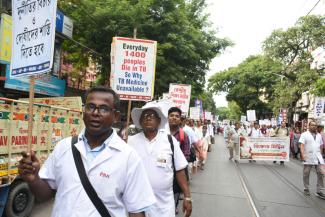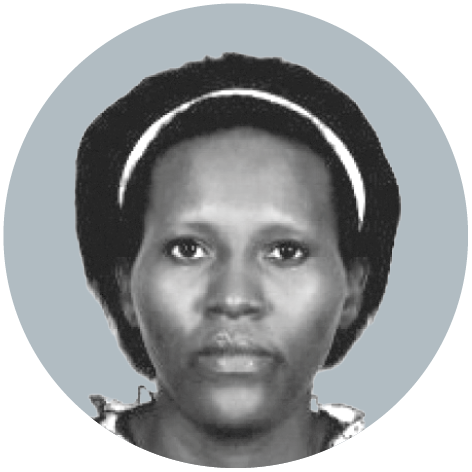Drug-resistant TB
India’s promising approach to tackling drug-resistant TB

The BPaL regimen will now apply to all patients who suffer from either multi-drug resistant or extensively drug resistant TB. This treatment relies on three pharmaceuticals: Bedaquiline, Pretomanid and Linezolid.
The new approach is important for several reasons:
- The BPal regimen generally delivers good treatment results.
- It can also cut the treatment period in half, making it more likely that patients complete it in full. Completion is important because bacteria are otherwise more likely to mutate and develop a resistance against the drug in use.
- The national TB programme will cover the costs.
The fight for low-cost drugs
Costs matter very much of course, and patent protection normally makes innovative drugs expensive. In India, TB survivors and activists had been campaigning against pharma companies that use patents to maximise profits, instead of making life-saving drugs available to everyone in need. A patent grants a company exclusive rights to manufacture and sell a particular drug. This monopoly allows it to charge high prices. In India, those prices made treatment unaffordable to masses of people.
The most important BPaL drug is Bedaquiline. In India, the US based multinational Johnson & Johnson (J&J) held a patent until July 2023. TB campaigners contested its request to extend the patent until 2027. The Indian government ultimately decided not to do so. Therefore, Indian companies can now produce cheaper generic versions of the drug. As a result, the monthly treatment costs per patient are set to drop by up to 80 % and the government can now procure Bedaquiline at comparatively low costs for the national TB programme.
The programme will make the drug available not only in major cities, but also in smaller towns and even remote rural areas. That is where access to life-saving TB medication has been particularly limited so far.
The new BPaL regimen means that:
- patients will get more effective treatment,
- will not be overburdened by the costs and
- will be able to complete treatment faster.
Combined, these three aspects should make a big difference regarding the risks of drug-resistant TB. Success, however, will hinge on awareness raising as well. Many patients seek treatment from private practitioners and remain unaware of publicly funded programmes that offer free treatment. Without this knowledge, some patients will find treatment unaffordable and, as a result, may not complete their course.
Chahat Rana is an Indian journalist who specialises in public health.
ranachahat11@gmail.com
https://x.com/chahat_rana1














